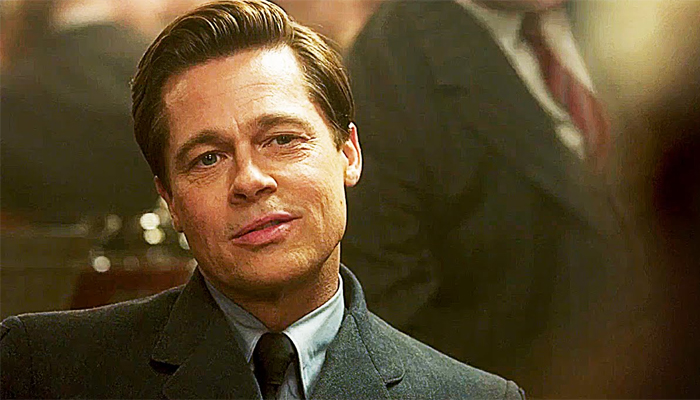
Entertainment doesn’t always have to be original. There are countless parodies, spoofs, and genre-tribute films that continue to amuse people; most of them don’t have a streak of originality in them, but at least they don’t pretend. On the other end, Oscar bait films are known for their pretension: films that are released before awards season to charm the jury members with their heavy melodrama, costume detailing, and fascinating life stories. The production of these films is dependent upon the corporate algorithm that rules the recommendation service of the giant steaming services; in this way, they are similarly prone to reverse engineer the taste of the consumers.
For years, Academy voters has been composed largely of older thespians. This discrepancy in age eases the task of the makers of these Oscar bait films to create “prestigious” films that would appeal to them and would comfortably get nominations. These unofficial schemes are now readily acknowledged and as a result, the Academy is now trying to widen the scope of their voters.
Oscar bait films are still being made and are recognized by the Academy, sometimes even as the winner of Best Picture. This article deals with a subsection of these Oscar bait films that unfortunately didn’t manage to get any heavy Oscar nominations despite having all the right ingredients. Without further ado, here are 10 Oscar bait films of the 2010s.
1. Victoria and Abdul
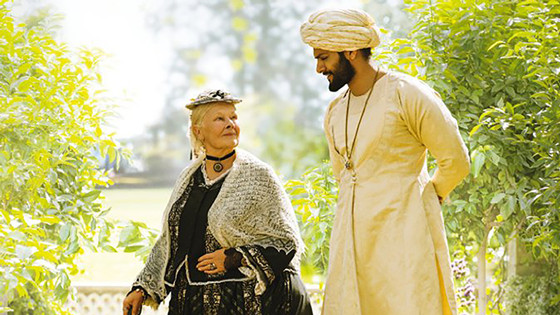
The Academy has always crowned the films that seek to absolve intercontinental tensions and which celebrate international harmony. If the films take place in a period setting, then it’s a bonus for filmmakers as there is a greater chance for a nomination for Best Costume Design and Best Art Direction.
“Victoria and Abdul” secured both nominations, though its goal was more lofty – to get major Oscar nominations. The subject of the film was the unlikely friendship between Queen Victoria and her colonial Muslim servant Abdul Karim. Apart from the dependable acting from Judi Dench, the film failed in every way to tell a coherent story, and its blatant attempt at revisioning the empire’s cruel history is evident in every scene.
Directed by veteran theatre director Stephen Frears, “Victoria and Abdul” plays in thick strokes where every confidant of the regal presence advised the monarch to reject Abdul from her courts. But the film’s only goal was to glorify the character of Queen Victoria and to present her as a rare, liberal lady of her time who didn’t discriminate against the low-caste Muslims from the others. Every other person in the court shouts Abdul’s name labelling his caste “Muslim,” so the treatment is not very subtle. This fictitious account of the British raj was not greatly accepted by Academy voters, and the costume drama “Victoria and Abdul” became a failed Oscar bait film.
2. Mary Queen of Scots
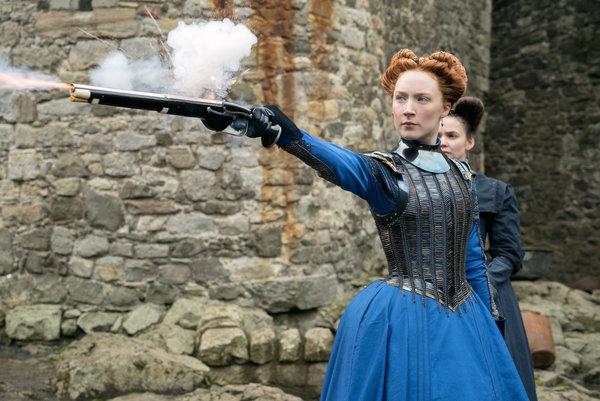
If not historical revisionism, a decently-made remembrance is also a powerful way to garner the attention of the Academy voters. If historical accuracy is not respected, it doesn’t matter as long as the tale on screen is emotional and grasping. In reality, the Queen of Scotland Mary and the British Queen Elizabeth never met each other in their lifetimes; they only they exchanged letters. But in this period drama “Mary Queen of Scots,” they not only meet with each other, but their bittersweet relation is the subject of the film.
While the subversive period drama and far better film “The Favourite” was still in theatres, “Mary Queen of Scots” was released worldwide with a diluted story and a conventional but laughable approach. Much like a BBC production, the treatment of the film was stereotypical and the only subversion was to overthrow the whitewashing norm; but in doing so, they cast non-European actors in European roles.
The rules are broken, but in what a wasteful way. Now that the history lesson in the film is thoroughly compromised, the drama had to be strong. But the other divisions of the film was equally uninteresting with an unconvincing Scottish dialect from Saiorse Ronan and an off-putting script. While the conflict-filled erotic period tale could have been an exciting watch, the amateurish direction didn’t qualify the sure-shot bait to get major Oscar nominations.
3. Allied
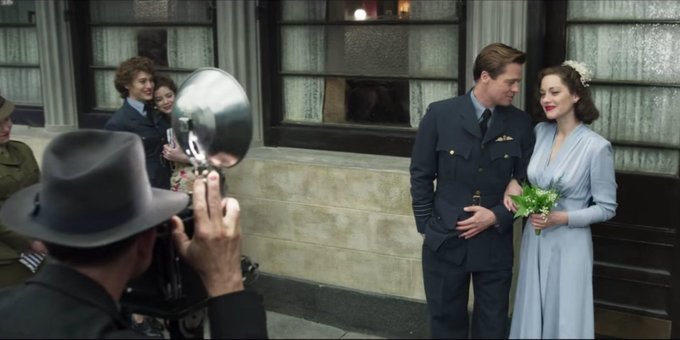
To be honest, a romantic thriller-drama that plays in war-ridden Casablanca that gives tribute to the romantic classic “Casablanca” is every cinema lovers’ wet dream, Academy voter or not, provided the casting is strong. The chemistry has to be strong as one had to fit into the shoes of Humphrey Bogart and Ingrid Bergman; the comparison would be made, even if the stories are poles apart.
In his comeback to live-action film, Robert Zemeckis won at the initial challenge of casting with charmers Brad Pitt and Marion Cotillard in the lead roles. The story is not poles apart from “Casablanca,” though; the drama revolves around the conflict between love and duty with Cotillard playing the role of a German spy, unknown to her lover and husband Canadian intelligence officer Max Vatan, played by Pitt. The duty was to exploit Vatan for national interest, but unexpectedly, she falls in love with Vatan which creates the conflict: the choice between love and responsibility.
In his somewhat Bogartian role, Pitt is successful and so is Cotillard in her simpler but more subtle presence. But while their chemistry is assuring to tap into the right romantic melodrama tones, the thriller elements badly juggle with the storyline to make an incoherent style. The CGI is not convincing – take the Moroccan desert scene – and although the costume design was sleek and snatched a rightly Oscar nomination, the unassured commitment between thriller and romance cost “Allied” and the highly thoughtful Oscar bait didn’t work.
4. Saving Mr. Banks
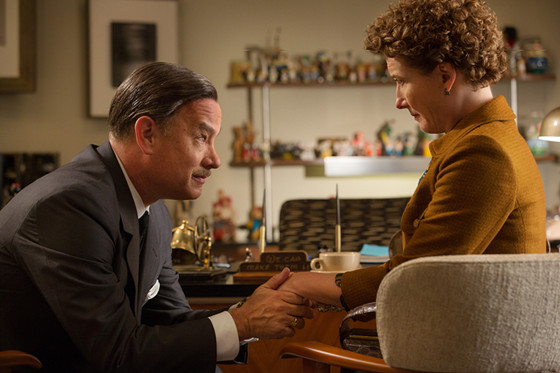
Disney mogul Walt Disney is widely celebrated among all age groups, decades notwithstanding. He was a powerful man indeed and much loved for his cartoons, but was not a very polite and humble man as he was often projected to be. The easy route is always to glorify a national hero, to not offend the mainstream senses, and “Saving Mr. Banks” did the same by making him an emotional and sensible human being who cared for the author P.L. Travers’ idiosyncrasies and awkward demands while adapting her novel of the same name for the humongous successful “Mary Poppins.”
The filmmakers played a masterstroke by casting Tom Hanks in the role of Walt Disney, as Hanks is also known for his neat off-screen image. The film shows that the writer P.L. Travers argued with Disney for the softening of Mary Poppins’ character and Disney cared to her sentiment, but in reality, Disney was harsh toward her after securing the final cut privilege. Again, in the film, the writer is visibly moved after watching the screen adaptation of her popular novel, but iTravers was actually enraged after seeing a diluted, soft adaptation of her book in real life.
The titular conflict of the film was presented not with sophistication but with soap opera sensibility, which was occasionally riveting to watch but is not a groundbreaking piece of work. Historical inaccuracies aside, all of the characters in the film were the product of immense Disneyfication. Although the critics praised the film for its performances, its Oscar bait approach was not overlooked and as a result, it only gained a nomination for Best Original Music Score.
5. Don’t Worry, He Won’t Get Far on Foot
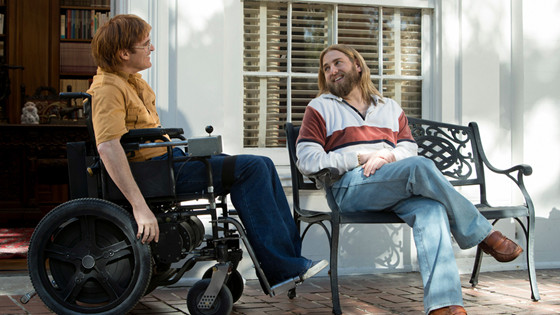
If the title doesn’t already reveal the film’s overly melodramatic sensibilities, be assured the film is dedicated to this tone. Hollywood and the Oscars always love stories that inspire people, and a real-life hardship tale is ready to be embraced. The real life of talented cartoonist and alcoholic John Callahan is fascinating, in how he overcame his paraplegic condition.
Directed by talented director Gus Van Sant, “Don’t Worry, He Won’t Get Far on Foot” boasts an amazing performance by Joaquin Phoenix, but it is the only good part of the film. Otherwise, the film is very confusing, especially for viewers who are uninitiated with the story of John Callahan. This is a very clever decision: to make a sentimental film like this with a nonlinear narrative, as it would floor the juries. But it made the film difficult to follow for first-time viewers as the sense of time and space is not established.
The film also suffered from terrible miscasting – especially of Jonah Hill and Rooney Mara. “Don’t Worry, He Won’t Get Far on Foot” doesn’t offer enough insight into the real life of Callahan, but invites the viewers to invest in the protagonist’s difficult condition and get inspired by his story of impossible strength. There are sentimental parts in the film that are truly life-affirming, but the film had to raise these parts more or lower them significantly to make a great film that deserves the Oscar love.